With their latest performance, Harmonie Deschamps’ Lilanoor Ensemble brings to Mumbai a glimpse into the French and German cabaret and folk music from the end of the 19th and early 20th century
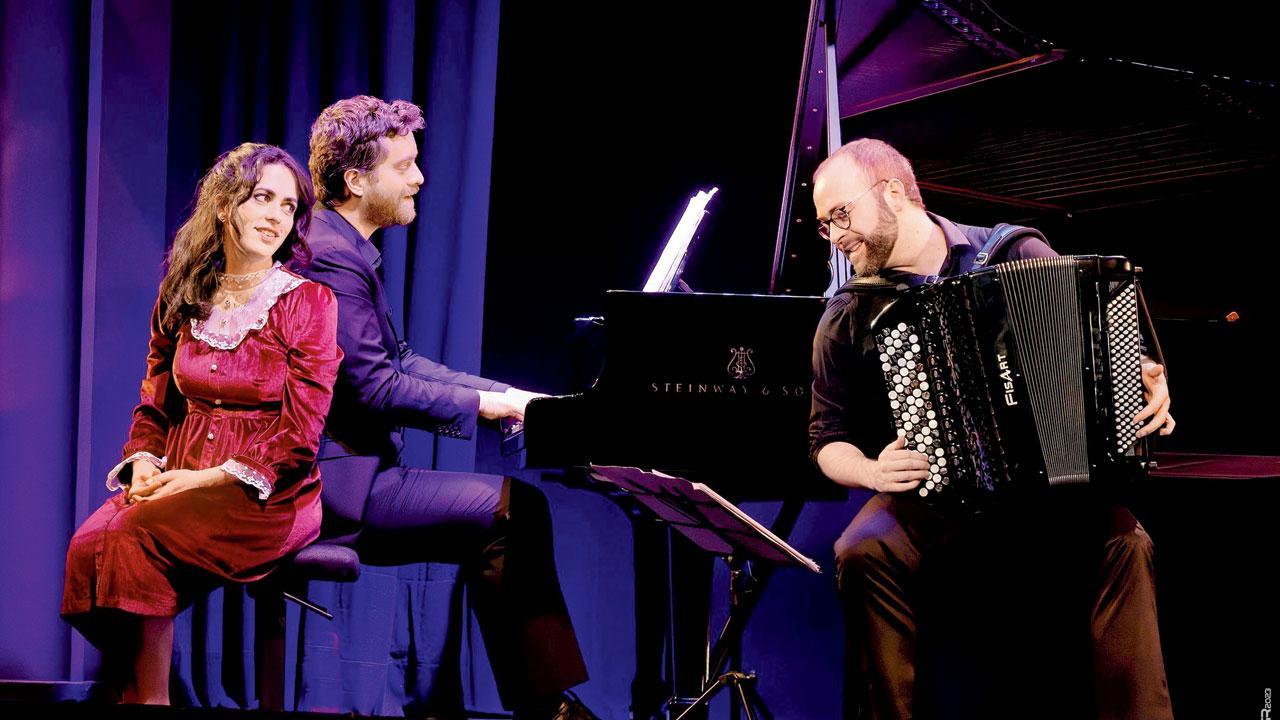
Deschamps, Benjamin Pras (on the piano) and Pierre Cussac in performance
In a moment of sublime introspection in Carol Reed’s 1949 classic, The Third Man, Orson Welles’ anti-hero, Harry Lime remarks, “In Italy, for 30 years under the Borgias, they had warfare, terror and murder but they produced Michelangelo, Leonardo Da Vinci and The Renaissance. In Switzerland, they had brotherly love; 500 years of democracy and peace — and what did they produce? The cuckoo clock!” Lime’s remarks bear witness to the truth that chaotic times often produce great art, or at the very least, inspire a shift in its status quo. The Lilanoor Ensemble’s latest production at Prithvi Theatre on September 25 looks back at the results of the momentous times in France and Germany back in the late 19th and early 20th centuries, and their contribution to world music.
ADVERTISEMENT
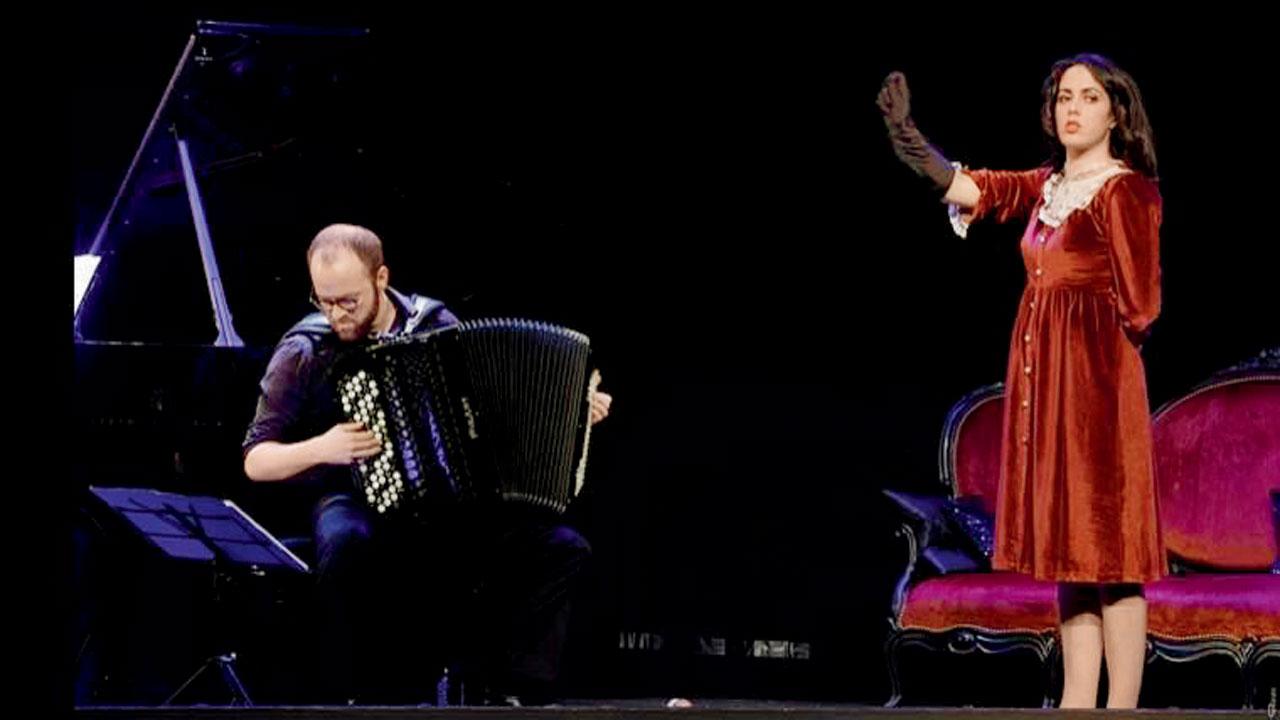
Deschamps with Cussac on in a moment on stage. Pics courtesy/lilanoor-ensemble.com
Curated and founded by French actress and singer, Harmonie Deschamps, the ensemble is a familiar presence in India. Deschamps is also the co-founder for the Lilanoor Center for Voice and Music in New Delhi, and has been performing in the country since 2018. In 2022, she decided to venture into curating and creating performances that blend genres through her performances. “I am trained as an actor, although I began by learning music at the age of six years,” says Deschamps, who has also performed at the Philharmonie de Paris, Theatre Du Chatelet and Arsenal de Metz among other spaces. Naturally, she notes, my shows have elements of acting, poetry and literature along with music.
The show, titled Quand on vous aime comme ça (When they love you like that...), takes its title from a song by the French actress and cabaret singer, Yvette Guilbert. Guilbert, also a muse for the renowned artist Henri de Toulouse-Lautrec, was a star during the Belle Époque of late 19th century France. “The show is inspired by women who were artistes, singers and dancers in the cabarets — stars of the time — who were often treated poorly,” shares Deschamps. For many of these women in French and German societies, the cabaret was the only means to a comfortable life. “But they would often be discarded when they grew old. It was a sad condition,” she added.
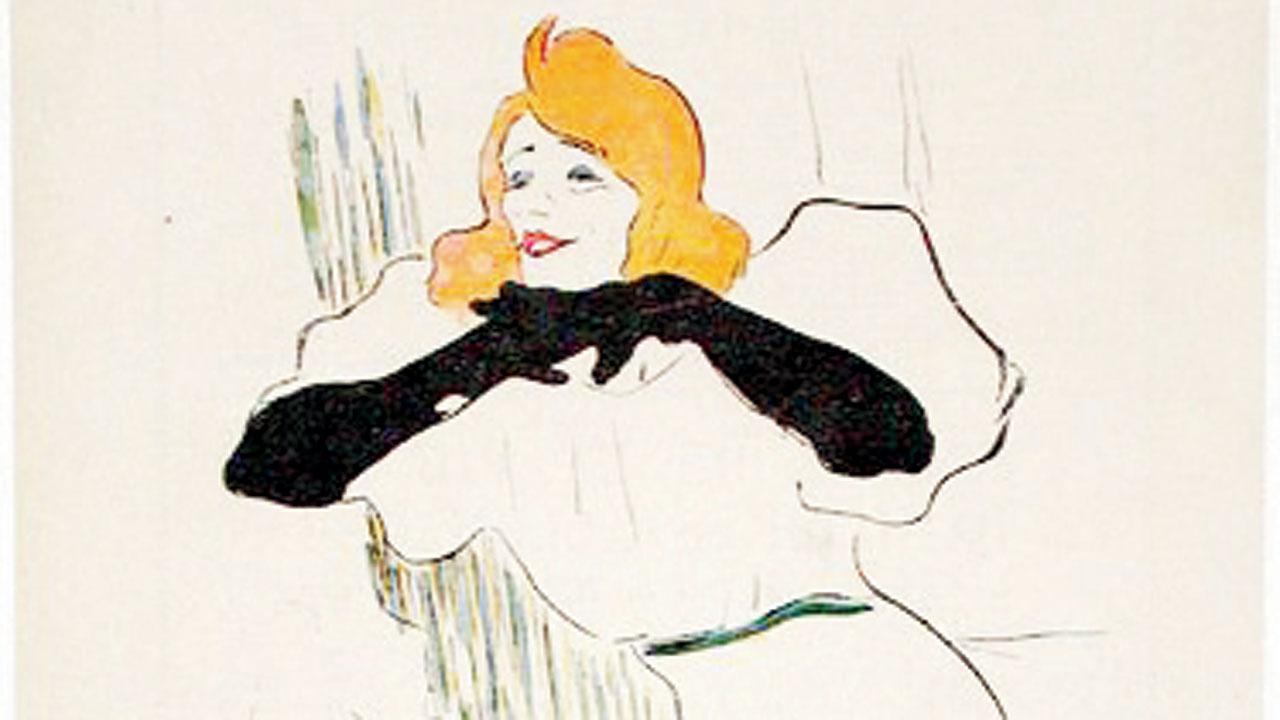
Toulouse-Lautrec’s illustration of Yvette Guilbert. Pics Courtesy/Wikimedia Commons
It was also a time of social revolution; the singer informs us. “There are some texts against patriarchy and denouncing violence. One song by Yvette Guilbert speaks about a man who beats her. It is trivial and the words are rough, but there is a musical aspect to its Western classical part, which is innovative and breaks with formal tradition,” she points out.
The innovation also extended to compositional styles. Deschamps observes, “For instance, [Claude] Debussy, who has a place in this show, was a regular at cabarets. They wanted to break the image of the romantic Paris, and jump into the modern era with a new language, colour and arrangements. Many of them were also inspired by Eastern sounds and instrumentation.”
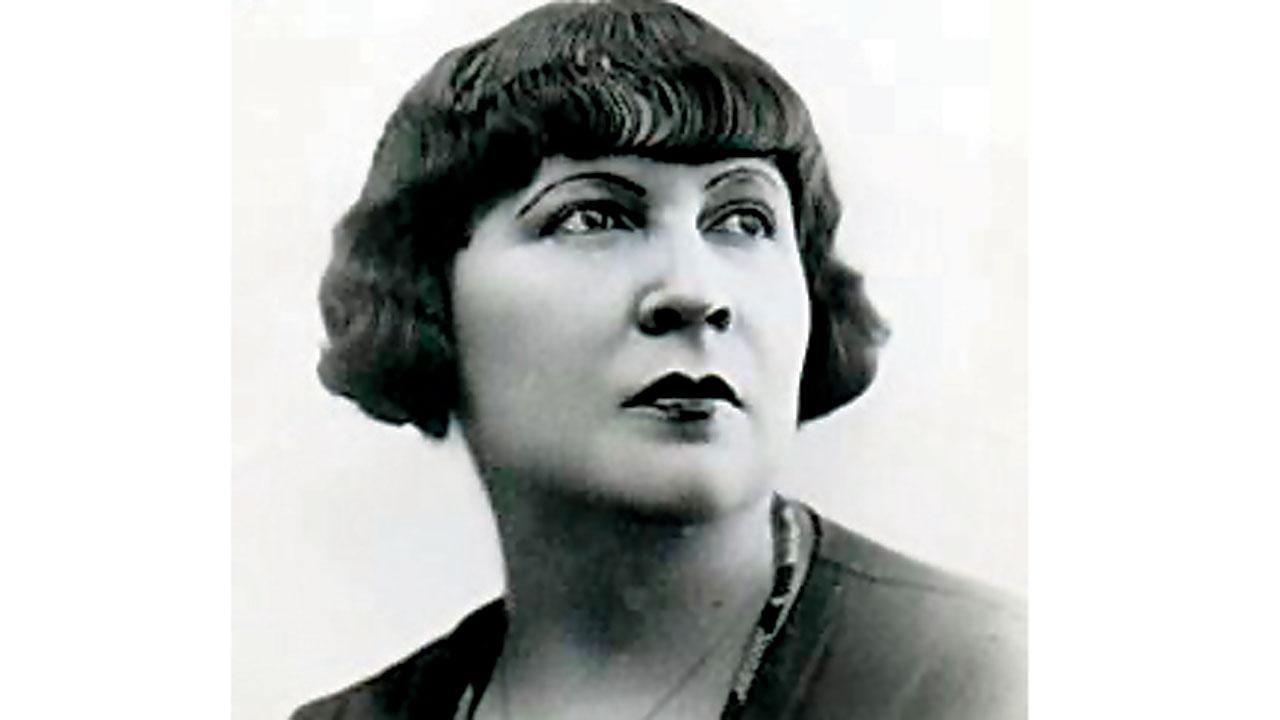
The singer, Frehel
Richard Wagner, Franz Schubert and Debussy share space with Fréhel, Marie Dubas and Guilbert as the pieces blend together Western classical and folk music. “We took pieces that were not written for the accordion at all, and shaped it to suit the instrument. It suits the cabaret atmosphere, and adds a realistic touch to the songs that speak of the working-class of people,” she says. The group will be led on the accordion by ace accordionist Pierre Cussac, alongside composer Benjamin Pras on the piano. The performance features a combination of French melodies, German Lied, Kabarett and Café-concert classics shaped to a narrative.
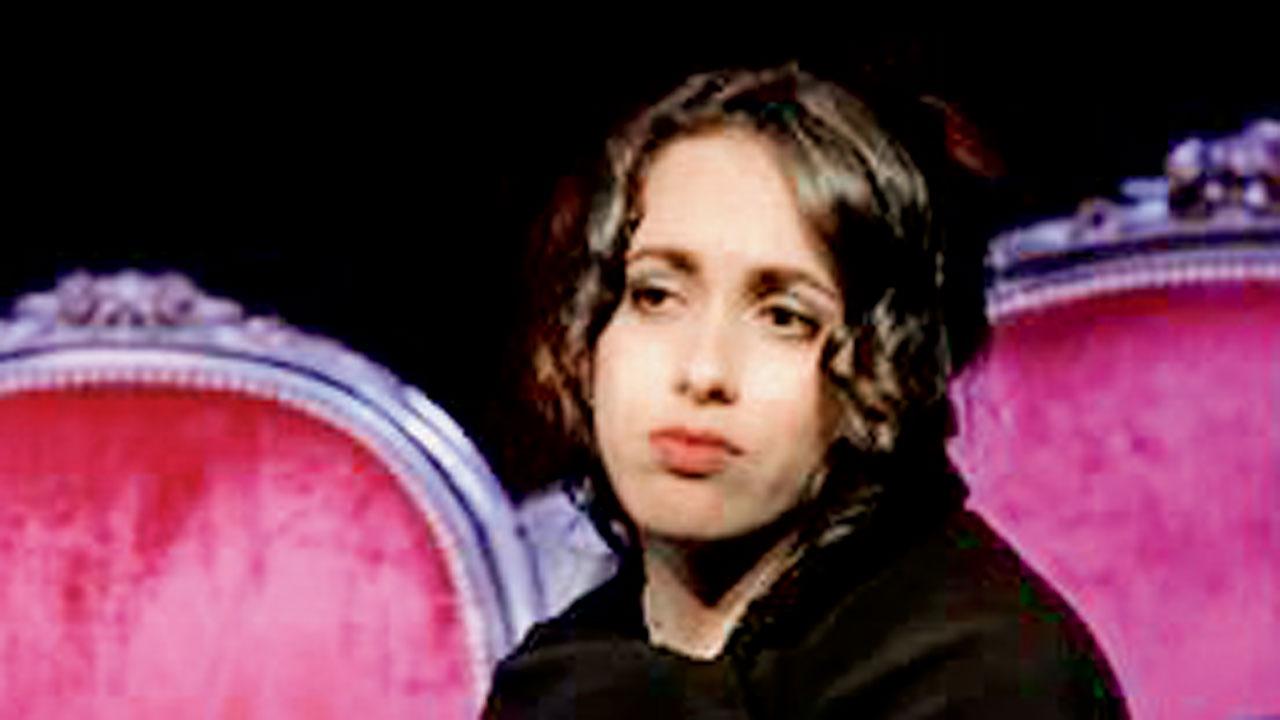
Harmonie Deschamps
For Deschamps, the performance is just another way of introducing people to a different facet of European history. “Each time I can, I bring these shows to India because it creates new links between French and Indian artistes,” the founder signs off.
On: September 25; 7.30 pm
At: Prithvi Theatre, 20, Janki Kutir, Juhu Church Road, Juhu.
Log on to: in.bookmyshow.com
Cost: Rs 300 onwards
 Subscribe today by clicking the link and stay updated with the latest news!" Click here!
Subscribe today by clicking the link and stay updated with the latest news!" Click here!







